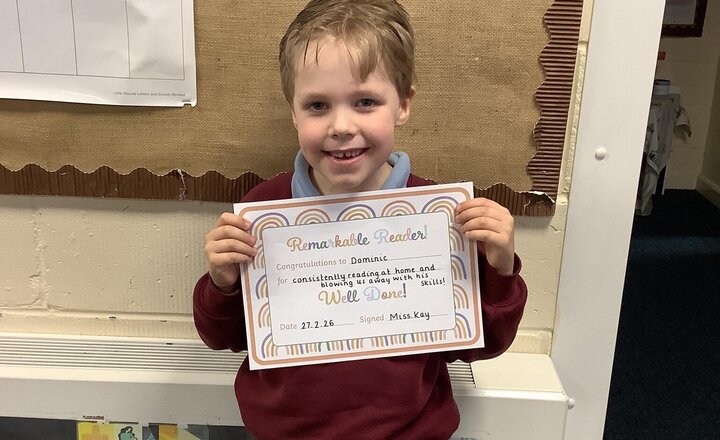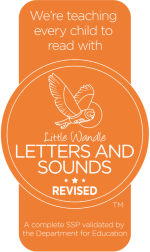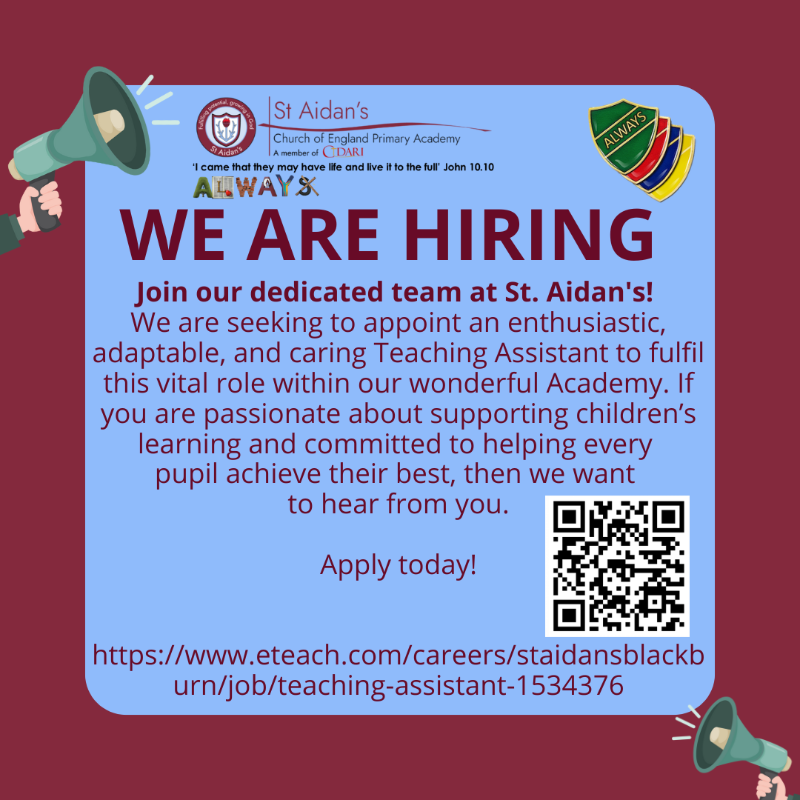Reading in Key Stage Two
In Key Stage Two we teach reading in whole class sessions where no child is left behind. Whole class reading is taught for 30 minutes a day, every day. A typical week has two sessions based on the class's daily novel and three sessions based on the wider curriculum.
The class novel is read to the children for 15 minutes a day directly before lunch. It is always read by the teacher. We invest in whole class sets of books to make sure the children can read along with the teacher during this time. This book is then studied for 30 minutes in whole class reading sessions on Monday and Wednesday. The aims of the session are to ensure that all the children are literally and figuratively on the 'same page' of the text. There are no exam-style questions, rather rich discussion on the overarching themes of the text and these sessions end with a balanced argument question where the children are encouraged to share their own opinions and thoughts.
The sessions on the other three days usually link to the wider curriculum and texts are chosen so that they are at an appropriate level for the class. These are also 30 minute sessions. These sessions link to topics such as science, history or geography. Sometimes they will link to something topical or that is currently in the news and of interest to our children. The aim of these sessions is to cover pivotal knowledge that the children need to access the wider curriculum. For example, if Year 3 are doing a science objective about igneous, metamorphic and sedimentary rocks, the guided reading lesson may cover what the knowledge needed around this is. This leaves time in the afternoon for our children to have more opportunities for practical scientific work. By covering so much of the topic in a reading lesson, we have longer to impart the knowledge and more time to discuss it, but we also leave longer for our children to work scientifically and, in many instances, have more fun doing it.
Reading for Pleasure
Every day the teachers read aloud the class book to the children. These texts are chosen carefully so there is a range of high quality, diverse texts to engage the children and appeal to everyone.
Class novels 2023-2024
(The books may not be read in this order)
|
Y3
|
Y4
|
Y5
|
Y6
|
|
Planet Omar Accidental Trouble Magnet |
The Highland Falcon Thief |
Boy at the Back of the Class |
The Boy Who Made Everyone Laugh |
|
An Alien in the Jam Factory |
Anisha Accidental Detective |
Cosmic |
Holes |
|
Charlie and the Chocolate Factory |
The Lion The Witch and the Wardrobe |
Wizards of Once |
A Kind of Spark
|
|
Grimwood |
When the Mountains Roar |
Nevermore |
Wild Boy |
|
How to Train Your Dragon |
The Marvellous Journey of Edward Toulane |
Coraline |
Who Let the Gods Out |
|
The Girl Who Stole an Elephant |
The Lost Bear |
Wonder |
Letters from the Lighthouse
|




Reading is encouraged at home and all children have an appropriate reading book. Children can change their books throughout the week and teachers record when they have been changed and the books that they are choosing to read. Children are encouraged to borrow books from the school library which is open on Tuesday and Thursday lunchtimes.
Reading in KS1 and EYFS
Reading in KS1 follows the Little Wandle scheme. In Reading Practice children are split into small groups and everyone in the class reads with an adult. This is usually 5/6 groups of children with each group having one adult with them. The sessions focus on either decoding, prosody or comprehension. Each group reads a book that matches the phonic phase they are currently assessed at. Children take their books home on Thursdays and return the book on Mondays. Children in year 2 who have completed the phonics scheme move onto the fluency books, then Collins Big Cat books but still follow the three times per week reading pattern.
All EYFS and KS1 children take home a “book we know well” every week - these are books that they have shared in story times with their teachers. They can then share the book with adults or older siblings at home.
Children are encouraged to borrow books from the school library which is open on Tuesday and Thursday lunchtimes.
Reading Plus 
We are thrilled to introduce Reading Plus as a new tool to enhance student learning at St. Aidan's. Reading Plus is an innovative online platform designed to enhance your child's reading abilities and foster a lifelong love of literature.
How Reading Plus Works
Reading Plus employs a unique combination of engaging content and adaptive technology to personalise the learning experience for each student. Upon starting the program, your child will complete an assessment to determine their appropriate reading level. From there, they will have access to a vast library of over 1,200 diverse texts, including fiction, non-fiction, and informational pieces. The program intelligently tracks their reading habits and suggests new materials to broaden their horizons.
Key Features and Benefits
-
Guided Window: This tool helps students develop effective reading strategies by guiding their eyes across the page, improving reading speed and stamina.
-
Comprehension and Vocabulary Development: Students answer questions after each text to reinforce understanding and expand their vocabulary.
-
Personalised Learning: Reading Plus adapts to each student's progress, ensuring they are appropriately challenged and motivated to grow.
-
Home Access: Your child can access Reading Plus from any computer, laptop, or tablet, allowing them to continue their reading journey outside of school.
Supporting Your Child's Success
We encourage you to actively participate in your child's Reading Plus experience. Discuss their progress, celebrate their achievements, and help them make connections between what they are reading and the world around them.
Additional Resources
For more information about Reading Plus, please visit the Reading Solutions UK website or contact your child's teacher.
We believe that Reading Plus will be a valuable asset in empowering our students to become confident, capable, and enthusiastic readers.
An Introduction to Reading Plus powerpoint





.png)
.png)
.png)



